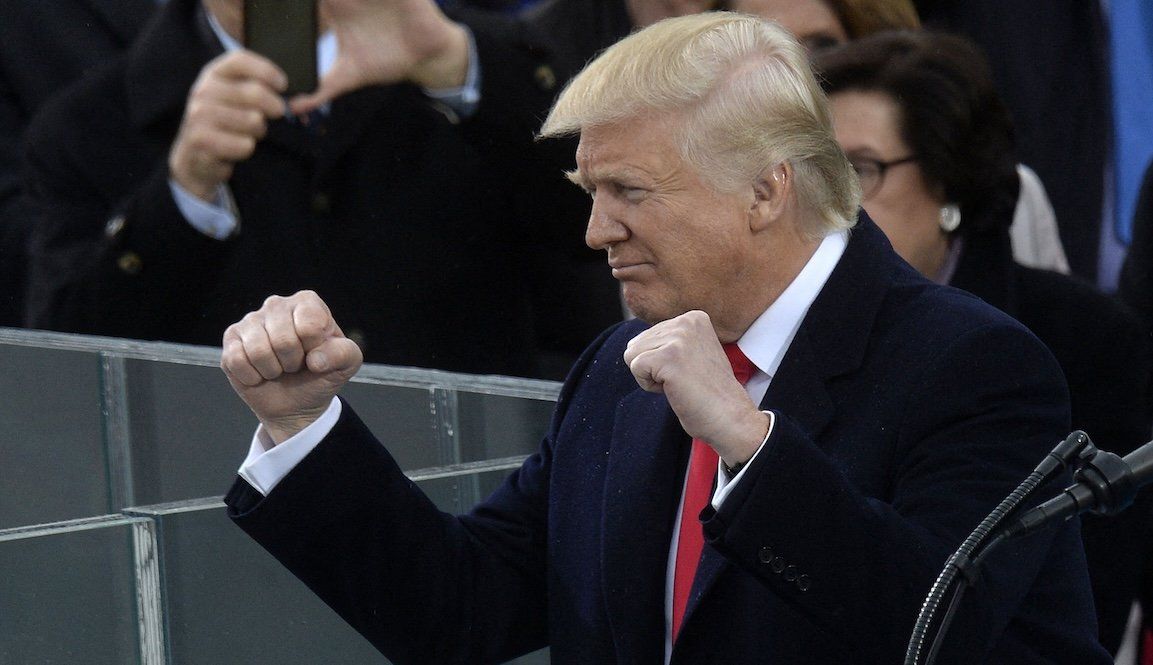Donald Trump gestures after taking the oath of office during his first inauguration in Washington, DC, in January 2017.
The Justice Department on Friday charged three men with plotting to assassinate Donald Trump on the orders of the Iranian government.
“The charges announced today expose Iran’s continued brazen attempts to target US citizens, including President-elect Donald Trump, other government leaders and dissidents who criticize the regime in Tehran,” FBI Director Christopher Wray said Friday.
The alleged murder-for-hire scheme was unveiled as investigators interviewed an apparent Afghani Iranian government asset who told them that a contact in Iran’s Revolutionary Guard instructed him to create a plan to surveil and ultimately kill Trump. The plot was unsealed days after Trump prevailed in this week’s presidential election and is purportedly among other ongoing Iranian efforts to take out US government officials on American soil. Another alleged plot targeted Brooklyn-based human rights activist Masih Alinejad. (See Ian Bremmer’s interview with Alinejad in the wake of Mahsa Amini’s in-custody death in Iran from 2022 here).
Two of the three men have been arrested, but one, Farhad Shakeri, remains at large and is believed to be in Iran.
Why would Iran want to kill Trump? During the first Trump presidency, the US and Iran found themselves on the brink of war after Trump ordered a strike that killed Qassem Soleimani, one of Iran’s top generals. Trump also withdrew the US from the Iranian nuclear deal and reimposed economic sanctions on the Islamic Republic.
Iran likely dreads another Trump presidency, not only because the president-elect may pursue another “maximum pressure” strategy, but because he is likely to empower Israel to intensify its fight against Iranian proxies.
